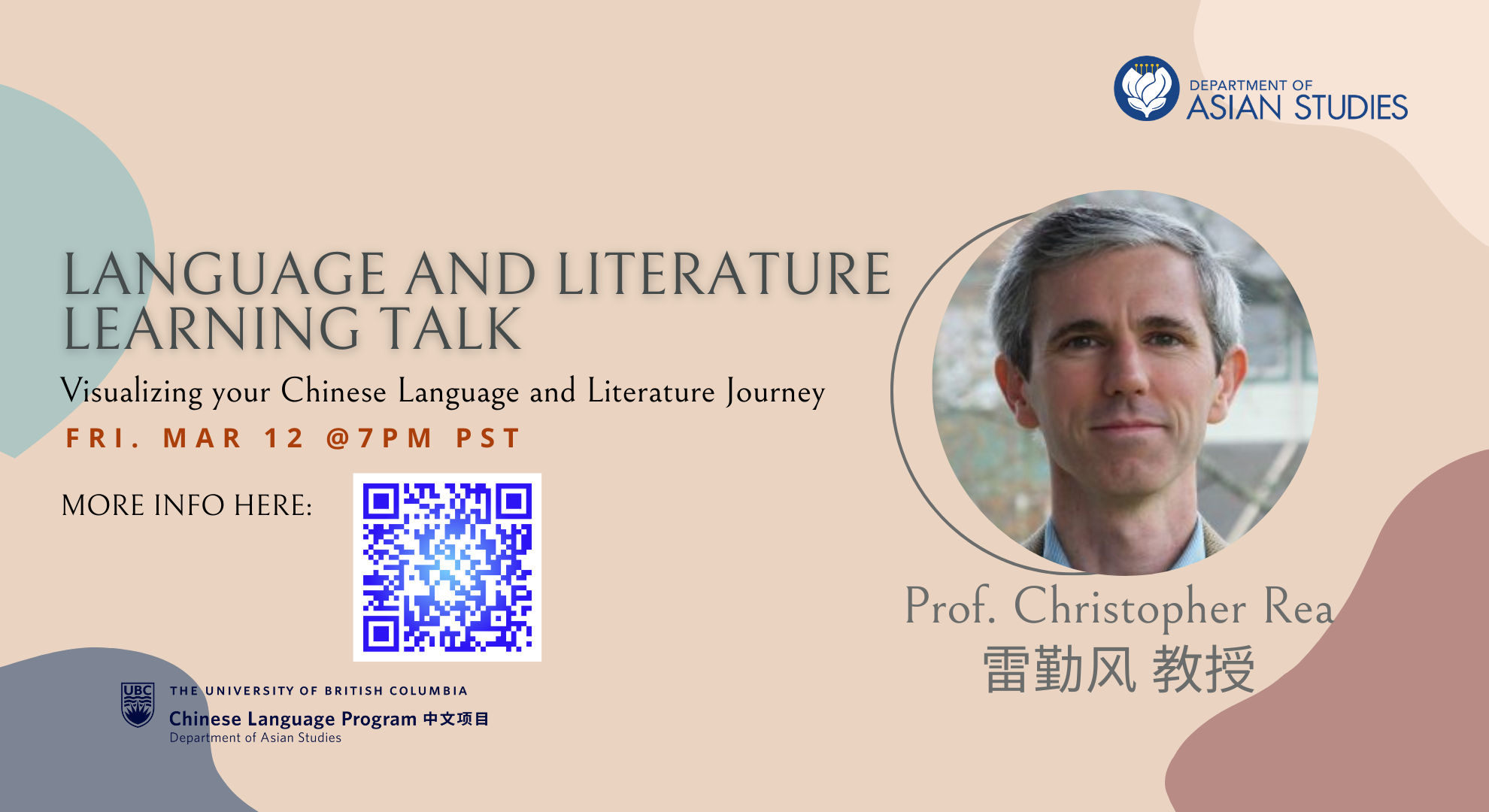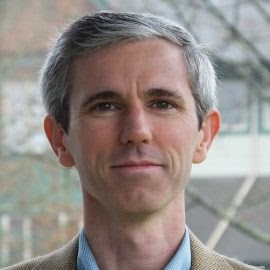中文奇旅:语言学习经验谈
DATE
Friday, March 12, 2021
TIME
7:00 PM – 8:00 PM PST
LINK
NOTE
If you wish to apply a bonus mark towards your current CHIN course for participating, you will NEED TO write a reflection of what you learned and how the talk inspired you AND submit it to this survey by Friday, March 19th @ 11:59 PM PST. Click here for more details.
Here is the recording:
About This Talk
Now that you have taken some Chinese courses at UBC, you may be asking yourself, how can I keep on learning Chinese language/literature? How can I integrate this into wherever I go in life? Or are you searching for some good learning strategies when it comes to mastering the language? Whether you are new to learning Chinese, or you are a seasoned speaker enrolled in an advanced literature course, come join us at our talk where you can learn the answers to these questions and so much more!
Our speaker, Dr. Christopher Rea 雷勤风 教授 (UBC professor, modern Chinese literature), started learning Chinese at his first-year college year, and his Chinese surprises even native speakers! He will share his inspiring Chinese language learning journey, most effective learning strategies and provide some useful ideas on staying motivated when learning Chinese. The Chinese language is the most used mother tongue on the planet and many people are learning it as their second language. Understanding this beautiful language rich in history would allow you to connect with many others! To be a successful speaker of this language begins with effective learning classroom strategies.
For those who are interested in the literature aspect, Professor Rea will also discuss the beauty of Chinese literature and how students from different academic disciplines and areas can benefit from learning about its interesting history for your future. His knowledge of Chinese films and literature is extremely expansive — in fact, his Chinese Literature and Film courses at UBC are really popular and attract many students!
Regardless of your major, whether it be chemistry or psychology, this talk can aid you in classroom success and help you accelerate your Chinese language and literature learning journey! Aside from in-class learning, speaking Chinese also equips you with language and intercultural skills that are attractive to employers. You will also have opportunities to ask Professor Rea any questions regarding Chinese language and literature learning that you may have.
CHIN Students:
If you wish to apply your participation in this event for a bonus mark in your current CHIN course, make sure to write a reflection of what you learned and how the talk inspired you.
Submission:
Please send it HERE.
Deadline:
Please complete by Friday, March 19th @ 11:59 PM PST.
You can choose to write a reflection in Chinese (rubric below 👇), OR in English (200 words), you are required to speak to at least one point Professor Rea made in this talk.
Rubric for Chinese response:
|
1- Low level (50+ characters) |
2 – Intermediate level (75+ characters) |
3 – Advanced level (150+ characters) |
|
| Non-Heritage Language | CHIN131, 133, CHIN233 | CHIN333, CHIN337 | CHIN403, CHIN407 |
| Heritage Language | CHIN143 | CHIN243 | CHIN343, CHIN347, CHIN437, CHIN443 |
| Literature | X | X | All Literature Courses |
Rubric for English response:
200 English words for all students
Speaker
Professor Christopher Rea is a literary and cultural historian whose research focuses on the modern Chinese-speaking world. His most recent publications concern comedy, celebrities, swindlers, print culture, cultural entrepreneurs, literary cosmopolitanism, and the scholar-writers Qian Zhongshu and Yang Jiang. He is also a translator, most recently (with Bruce Rusk) of the Ming-dynasty work The Book of Swindles; here is a video introduction and an audio introduction to that book.
He began studying Mandarin in 1995 as a first-year student at Dartmouth College and spent one year in China during college (on three separate trips), studying in Beijing and Harbin, and working in Beijing and Shanghai.
Here is a video about Professor Rea’s most recent research and project:

